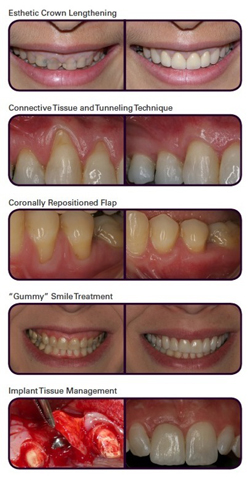Orthodontics FAQ
Earning this degree will show your patients and colleagues that you are pursuing education in orthodontics to the maximum level without specializing. For the majority of POS graduates, orthodontics is a part of their practice, and they enjoy having a general practice where they are free to perform implants, cosmetic, and many other areas of dentistry. With this degree you are still able to perform all these areas of dentistry, while still separating yourself from the typical GP practicing orthodontics in your area.
How the degree is recognized depends upon your local dental board. This Master’s degree is internationally accredited according to the “Bologna Criteria” with acceptance of the Ministry of Higher Education and the “Akkreditierungsrat.” This is the highest level of accreditation in Europe, and by agreement a degree accredited by this criteria is recognized in 47 international countries, including most of Europe. However, please check with your local dental board for details about your specific country.
This is at the discretion of your local dental board and the appropriate specialty organizations. From our experience, in most countries simply having this degree is not enough to qualify you for this distinction. Some countries, such as the USA, make it mandatory to spend time in a certified residency program to use this distinction. Other countries require you to apply with an organization, and sometimes pass a test. Please get in touch with your local dental board for the exact rules in your country.
The curriculum for this program is at the discretion of the participating University (and not POS), and it is intended to mimic the curriculum of most academic orthodontic programs. With this in mind, they are attempting to show you the many philosophies of orthodontics, and expose you to the differing in opinions. POS does not support or promote these philosophies or products, however, we do feel that it is in your best interest to have an understanding of these different areas of orthodontics.
This university program is intended to be a yearly program, with 30 applicants admitted per class on a first come, first served basis. The university has indicated that it will be willing to do multiple groups of 30 students in a year if demand is sufficient. So, if you are applicant #37 you may not be admitted this year. You will maintain your #7 spot for the following year, and will be in the first group in the following year.
The admission is based on a first come, first served basis, defined by when the admission fee (300 Euro) and the application is submitted to POS.
The initial non-refundable application fee (300 Euro) will be paid to POS. Your tuition (19,500 Euro) as well as Accommodation fees (3,500 Euro) will be paid to IMC in Germany. Upon receiving admission to the program, IMC will be sending you directions on how to pay as well as a deadline for payment. The tuition payment will be split into 4 payments, and the Accommodation fee is split into 2 payments.
IMC will be setting a deadline for you to make payment to secure your admission. Upon receiving this tuition, you will be give online access to the internet modules. However, if you fail to pay by the deadline, it will be assumed that you have declined to enroll for the year and you will be placed at the end of the wait list for future years. Your place in the class will be given to the next applicant on the waitlist. The Application fee (300 Euro) is non-refundable.
If you are a new POS student (or a doctor who is interested), you can join our Master Track program. In this program, you will submit your application with your non-refundable application fee, and you will be placed on the MSc waiting list. By the time you are a graduate from POS, you should be high enough on the waiting list to secure a place in that year’s Level II MSc program. Upon POS graduation, you will continue on to the Master’s Program.
The POS Section 4 training and Advanced Series are not requirements for this Master’s program. After dentists graduate from the POS 2-Year Orthodontic program, they can choose to gain further orthodontic training through various programs like the POS Section 4 training, Advanced Series and MSc in Specialized Orthodontics programs can be taken. The focus of the Master’s program is a more broad based academic knowledge of orthodontics, with the ultimate goal to receive an academic degree from a prestigious university. The focus of Section 4 and the Advanced Series of POS is more practical, focusing on more difficult cases and expanding your skills to successfully treat any case that comes to your practice. If you want to join the Master’s program in Growth Management, the Section 4 training is a prerequisite to enroll.




